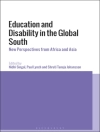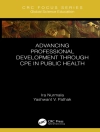From the Preface, by Arthur Kleinman: Patients and Healers in the Context of Culture presents a theoretical framework for studying the relationship between medicine, psychiatry, and culture. That framework is principally illustrated by materials gathered in field research in Taiwan and, to a lesser extent, from materials gathered in similar research in Boston. The reader will find this book contains a dialectical tension between two reciprocally related orientations: it is both a cross-cultural (largely anthropological) perspective on the essential components of clinical care and a clinical perspective on anthropological studies of medicine and psychiatry. That dialectic is embodied in my own academic training and professional life, so that this book is a personal statement. I am a psychiatrist trained in anthropology. I have worked in library, field, and clinic on problems concerning medicine and psychiatry in Chinese culture. I teach cross-cultural psychiatry and medical anthropology, but I also practice and teach consultation psychiatry and take a clinical approach to my major cross-cultural teaching and research involvements. The theoretical framework elaborated in this book has been applied to all of those areas; in turn, they are used to illustrate the theory. Both the theory and its application embody the same dialectic. The purpose of this book is to advance both poles of that dialectic: to demonstrate the critical role of social science (especially anthropology and cross-cultural studies) in clinical medicine and psychiatry and to encourage study of clinical problems by anthropologists and other investigators involved in cross-cultural research.
From the Preface, by Arthur Kleinman: Patients and Healers in the Context of Culture presents a theoretical framework for studying the relationship between medicine, psychiatry, and culture. That framework is principally illustrated by materials gathered
Tabela de Conteúdo
List of Figures
Preface
1. Orientations 1: The Problem, the Setting, and the Approach
2. Orientations 2: Culture, Health Care Systems, and Clinical Reality
3. Orientations 3: Core Clinical Functions and Explanatory Models
4. The Cultural Construction of Illness Experience and Behavior, 1: Affects and Symptoms in Chinese Culture
5. The Cultural Construction of Illness Experience and Behavior, 2: A Model of Somatization of Dysphoric Affects and Affective Disorders
6. Family-Based Popular Health Care
7. Patients and Healers: Transactions Between Explanatory Models and Clinical Realities. Part 1. Sacred Folk Healer-Client Relationships
8. Patients and Healers: Transactions Between Explanatory Models and Clinical Realities. Part 2: Professional Practitioner-Patient and Family-Patient Relationships
9. The Healing Process
10. Epilogue: Implications
Glossary
Bibliography
Index
Sobre o autor
Arthur Michael Kleinman, M.D. is Professor of Medical Anthropology in the Department of Social Medicine at Harvard University.












